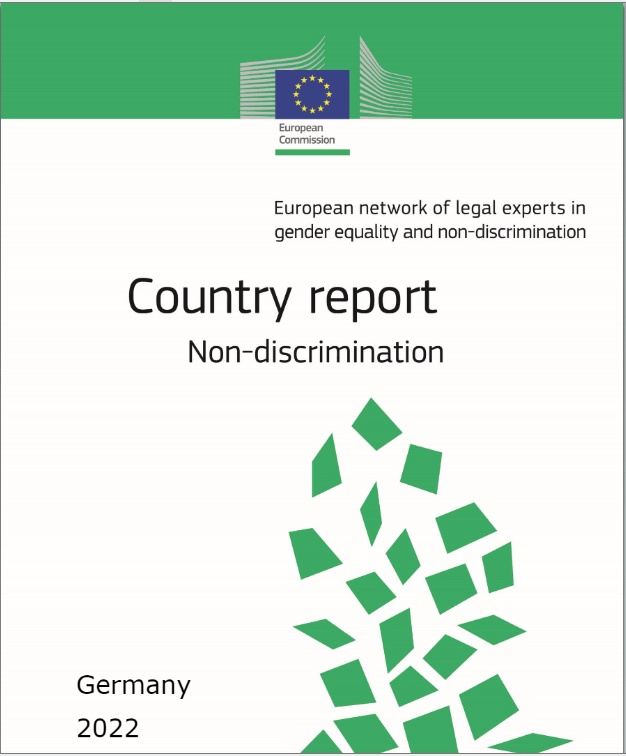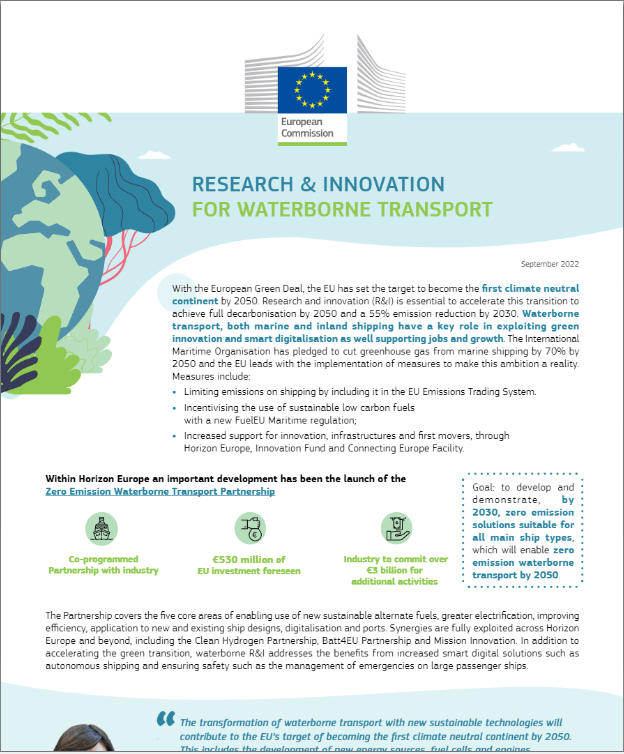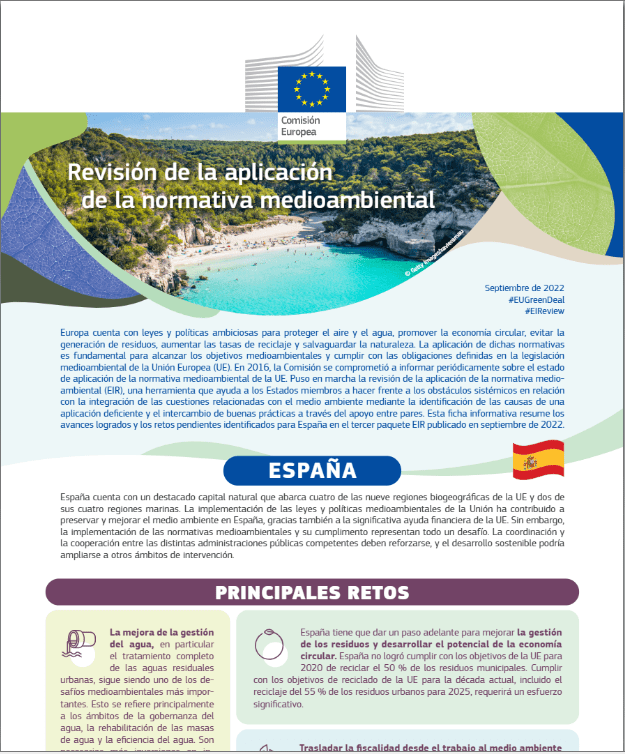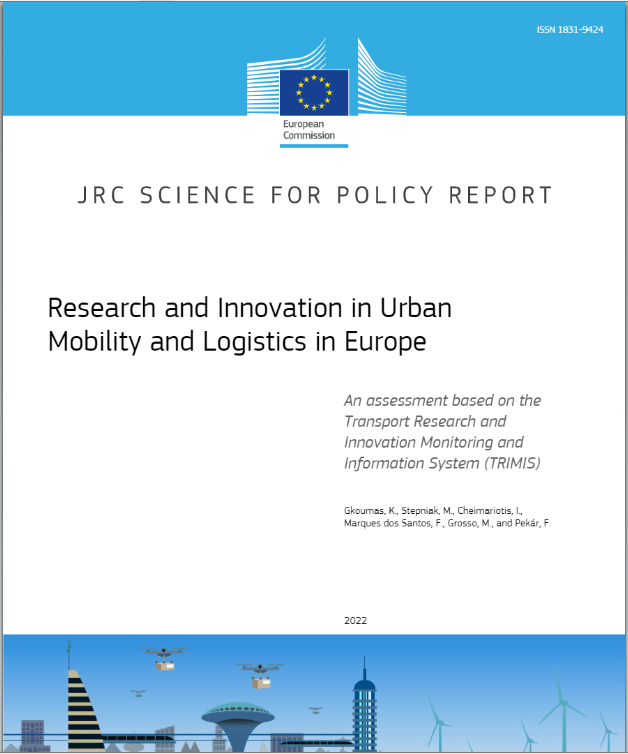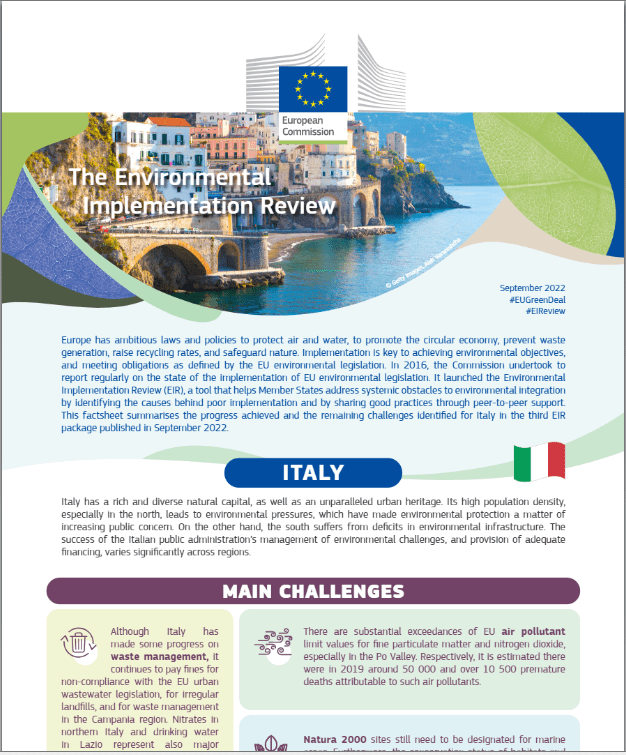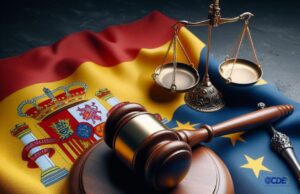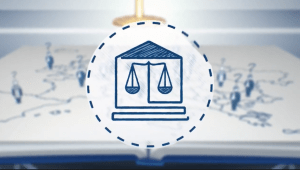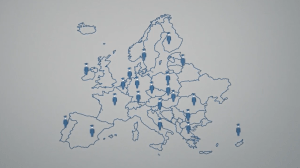
CDE Almería - Centro de Documentación Europea - Universidad de Almería
Centro de Documentación Europea de la Universidad de Almería
Derecho
Legislación, Jurisprudencia, Tratados y Sumarios de Legislación sobre las principales áreas de la política comunitaria. Contiene también las últimas noticias, mediateca y boletines relacionados con la materia.
Estás aquí: Fondo Digital CDE > Derecho

Transposition and implementation at national level of Council Directives 2000/43 and 2000/78 : Germany 2022
[Leer Más]The aim is to give, in an attractive visual manner, a view on the main results of European collaborative R&I to Waterborne transport. A selection of past projects highlight the improvements and progress made to today’s waterborne transport. These projects deliver concrete results and breakthrough technologies for sustainable alternative fuels, improving efficiency, electrification, digitalisation, shipbuilding increasing European competitiveness in line with the European Green Deal, Fit for 55, and the EU smart and sustainable mobility strategy wrt waterborne transport. The factsheet will demonstrate the importance of research so far and in the future to fulfill the objective of achieving safe, competitive climate-neutral European waterborne transport by 2050.
[Leer Más]Europe has ambitious laws and policies to protect air and water, to promote the circular economy, prevent waste generation, raise recycling rates, and safeguard nature. Implementation is key to achieving environmental objectives, and meeting obligations as defined by the EU environmental legislation. In 2016, the Commission undertook to report regularly on the state of the implementation of EU environmental legislation. It launched the Environmental Implementation Review (EIR), a tool that helps Member States address systemic obstacles to environmental integration by identifying the causes behind poor implementation and by sharing good practices through peer-to-peer support. This factsheet summarises the progress achieved and the remaining challenges identified for Spain in the third EIR package published in September 2022. Spain has an outstanding natural capital covering four of the EU’s nine biogeographic regions and two of its four marine regions. The implementation of EU environmental law and policy has contributed to preserve and to improve the environment in Spain, thanks also to the significant assistance from EU funding. Nevertheless, environmental implementation and enforcement represent overall a challenge. Coordination and cooperation among the different competent public administrations could be strengthened and sustainable development further mainstreamed into other policy areas.
[Leer Más]Europa cuenta con leyes y políticas ambiciosas para proteger el aire y el agua, promover la economía circular, evitar la generación de residuos, aumentar las tasas de reciclaje y salvaguardar la naturaleza. La aplicación de dichas normativas es fundamental para alcanzar los objetivos medioambientales y cumplir con las obligaciones definidas en la legislación medioambiental de la Unión Europea (UE). En 2016, la Comisión se comprometió a informar periódicamente sobre el estado de aplicación de la normativa medioambiental de la UE. Puso en marcha la revisión de la aplicación de la normativa medioambiental (EIR), una herramienta que ayuda a los Estados miembros a hacer frente a los obstáculos sistémicos en relación con la integración de las cuestiones relacionadas con el medio ambiente mediante la identificación de las causas de una aplicación deficiente y el intercambio de buenas prácticas a través del apoyo entre pares. Esta ficha informativa resume los avances logrados y los retos pendientes identificados para España en el tercer paquete EIR publicado en septiembre de 2022. España cuenta con un destacado capital natural que abarca cuatro de las nueve regiones biogeográficas de la UE y dos de sus cuatro regiones marinas. La implementación de las leyes y políticas medioambientales de la Unión ha contribuido a preservar y mejorar el medio ambiente en España, gracias también a la significativa ayuda financiera de la UE. Sin embargo, la implementación de las normativas medioambientales y su cumplimento representan todo un desafío. La coordinación y la cooperación entre las distintas administraciones públicas competentes deben reforzarse, y el desarrollo sostenible podría ampliarse a otros ámbitos de intervención.
[Leer Más]The European Green Deal and its target to achieve a 90% reduction in transport-related greenhouse gas emissions by 2050 together with the new EU Urban Mobility Framework put urban mobility and logistics in the spotlight of EU mobility policies. Research and innovation is paramount to respond to the challenges and to further improve mobility and transport systems in cities, while fully tackling the negative impacts of transport. This report provides a review of recent trends, challenges and achievements of European research and innovation initiatives in urban mobility and logistics. The report identifies relevant projects that focus on urban mobility, using the Transport Research and Innovation Monitoring and Information System (TRIMIS) database. It identifies the main trends in European research and it discusses main areas of development and key achievements. It also presents recommendations for future research priorities and initiatives.
[Leer Más]Europe has ambitious laws and policies to protect air and water, to promote the circular economy, prevent waste generation, raise recycling rates, and safeguard nature. Implementation is key to achieving environmental objectives, and meeting obligations as defined by the EU environmental legislation. In 2016, the Commission undertook to report regularly on the state of the implementation of EU environmental legislation. It launched the Environmental Implementation Review (EIR), a tool that helps Member States address systemic obstacles to environmental integration by identifying the causes behind poor implementation and by sharing good practices through peer-to-peer support. This factsheet summarises the progress achieved and the remaining challenges identified for Italy in the third EIR package published in September 2022. Italy has a rich and diverse natural capital, as well as an unparalleled urban heritage. Its high population density, especially in the north, leads to environmental pressures, which have made environmental protection a matter of increasing public concern. On the other hand, the south suffers from deficits in environmental infrastructure. The success of the Italian public administration’s management of environmental challenges, and provision of adequate financing, varies significantly across regions.
[Leer Más]- « Anterior
- 1
- …
- 540
- 541
- 542
- 543
- 544
- …
- 2.961
- Siguiente »
